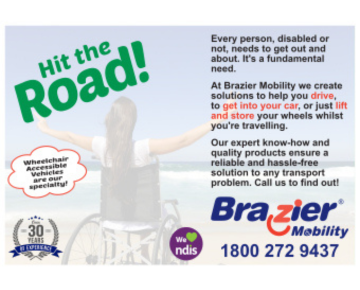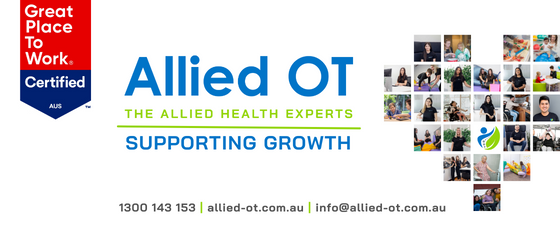Professional Practice Documents and Publications
OTA works with experts in the field to produce formal documents based on the best available evidence to provide guidance on professional practice issues. These documents are available below.
-
Informed views
-
Position papers
Bed Sticks, Poles and Rails Position Statement | September 2020
The Bed Sticks, Poles and Rails Position Statement informs services of the requirement for occupational therapist involvement in the prescription of bed sticks/poles and rails and aims to assist occupational therapists in understanding and mitigating risks associated with bed stick/pole and rail use.
Evidence-Based Practice Position Statement | January 2019
Evidence-based practice (EBP) is a key element of best practice in occupational therapy. This position paper covers what evidence based practice is, the rationale for using EBP, the different contexts for use and the responsibilities of occupational therapists, employers, and the wider profession for the use of, and contribution to, EBP.
Occupational Deprivation (April 2016)
The purpose of the Occupational Deprivation position statement is to outline the position of Occupational Therapy Australia in relation to occupational deprivation. This position statement is intended for occupational therapists but may also be useful for individuals and groups interested in working towards the creation of a fairer and more socially inclusive Australia.
Occupational Therapy and Driver Assessment and Rehabilitation (October 2015) - Amended March 2022
This Position Paper is currently under review. For further information, please contact OTA.
Developed to guide future practice and developments, and facilitate consistency of practice nationally in the area of driver assessment and rehabilitation, this position paper:
- outlines Occupational Therapy Australia’s position in relation to the advanced practice status of occupational therapy driver assessment and rehabilitation
- documents assessing and training of drivers with disabilities or impairments must be performed by occupational therapists with post-graduate driver qualifications for Driver Trained Occupational Therapists
- documents the current status of driver assessment and rehabilitation in Australia
- outlines a range of policy and environmental factors shaping this area of practice
- provides practice guidelines for occupational therapy in driver assessment and rehabilitation
Occupational Therapy and Oncology (August 2015)
This position paper:
- outlines the role of occupational therapy within integrated person-centred care in oncology
- aims to inform consumers, clinicians, academics, health service managers, professional associations and government bodies as to occupational therapy practice in oncology
- will inform service and policy development at a local and national level
Occupational Therapy and Palliative Care (August 2015)
This position paper:
- outlines the role of occupational therapy in palliative care in Australia
- provides an overview of the contextual factors experienced by the profession of occupational therapy in this practice setting
- proposes recommendations to improve practice and relevant policy
The role of Allied Health Assistants in Supporting Occupational Therapy Practice (October 2015)
This Position Paper is currently under review. For further information, please contact OTA.
For many years allied health (OT) assistants have been part of many public sector occupational therapy departments. With the increased opportunities for assistants arising from the NDIS and aged care reforms and with many workforce reviews in progress by Governments, Occupational Therapy Australia, like many of our other allied health association colleagues, have been developing position statements to guide practice in this area.This paper acknowledges the value these roles can bring but highlights the importance of supervision, clear lines of delegation and core training and identifies key tasks that assistants can appropriately conduct.
WFOT's Occupational Therapy in Work Related Practice | 2016
This statement presents WFOT's position on the rights of people, regardless of their ability, to participate in productive occupations, and the related role of occupational therapists.
-
Frameworks
OTA Framework: Formal Professional Practice Documents and Publications
The documentation framework outlines the guiding principles and core requirements for the development of formal OTA professional practice documents. The framework covers the application process, requirements for developing informed views, position statements, practice guidelines and frameworks, and governance requirements.
The intent of the proposed framework is to provide: clear guidance on the purpose, scope, and format of formal OTA document types; streamlined and transparent processes for developing and approving formal documents in a time sensitive way; and, principles and procedures for governance and quality assurance.
Professional Supervision Framework | 2019
Occupational Therapy Australia’s Supervision Framework aims to provide best practice guidance and resources on supervision for all occupational therapy members across Australia.
Occupational Therapy Scope of Practice Framework | June 2017
A clear framework for articulating scope of practice and identifying personal scope of practice will provide a guide as to the broad description of occupational therapy scope of practice that can inform practitioners, managers, academic course coordinators, employers, consumers, regulatory agencies, funding bodies, policy makers and others.
Advanced Practice Templates and Examples
- Autism Spectrum Disorder and Developmental Assessment in Paediatrics
- Neurology
- Oncology and Palliative Care
Developing Formal Professional Practice Documents and Publications
The OTA Framework: Formal Professional Practice Documents and Publications outlines the guiding principles and core requirements for the development of formal OTA professional practice documents. The framework covers how members may engage in the development of formal documents, what the application process entails, and what the requirements are for developing the different types of formal documents.
-
Clinical guidelines
Developing Formal Professional Practice Documents and Publications
-
Identifying a need for an OTA formal document
The need for a formal professional practice document may arise from changes in: Government policy; OTA strategic directions; societal contexts; best evidence-based practice; and where opportunities or risks to practice are identified.
The OTA Board may commission the development of a formal professional practice document for issues that are of significance to the occupational therapy profession.
Please read the Documentation Framework for more information about the guiding principles and core requirements for the development of formal OTA professional practice documents.
-
Developing & Submitting a Formal Document
OTA members and/or the OTA Professional Practice team may put forward a proposal for the development of a formal professional practice document. An informal literature review and environmental scan will be carried out to inform the proposal.
All proposals will be submitted to OTA via a written application. OTA will review all written applications and make the final determination on whether the topic/issue warrants a formal professional practice document.
OTA will provide feedback to the proposers on the reasons for their decision. If there is support for the proposal, the OTA Board will determine whether the formal document should be pitched as an informed view, a position statement, a practice guideline, or a framework document. They will also provide any special recommendations on how to proceed if this varies from the standard formal process for document development (e.g., recommended involvement of experts in the field).
-
Application
OTA members and/or the OTA Professional Practice Team may put forward a proposal to the OTA Board for the development of a formal professional practice document. The proposal will be based on an informal literature review and environmental scan. Please contact the OTA Professional Practice team at info@otaus.com.au If you have any additional queries.
All proposals must be submitted with an Application Form by the lead proposer, along with a Proposer Profile & Interest Disclosure form for each proposer.
- Application form
- Proposer profile & interest disclosure form (to be completed by all contributors)Please submit all documentation via the Application form below.







.jpg)





